Plenty of other year-end-best-of lists bemoaned the current streaming landscape as they rounded up their top picks for TV shows this year and, to be honest, we were primed to do the same. Our entertainment choices grew thin and predictable as the year waned which made it easy to trick ourselves into believing the entirety of 2024’s TV catalog was, well, mid as hell. But then, we started diving into the pool, pulling holdovers from our Mid-Year list and dropping a handful of newcomers into the lineup. The result? A surprisingly robust, exciting variety of series (both limited and recurring) that gave us hope for the future of Post Peak TV.
We’ve got Gotham gangsters with Oedipus-sized ambitions and Japanese warlords fueding over fiefdoms, snarky school educators, stand-up comics in their comeback eras, remakes and retellings worth watching (again?), sci-fi fare that makes the impending apocalypse look, dare we say, fun, and some truly bizarre sketch comedy series. Sure, 2024 was no “golden era” in terms of television, but it wasn’t a total bust either and plenty of the shows on this list deserve credit for that. Here’s the UPROXX teams’ picks for best TV shows in 2024. Make sure you give them a watch.
Baby Reindeer
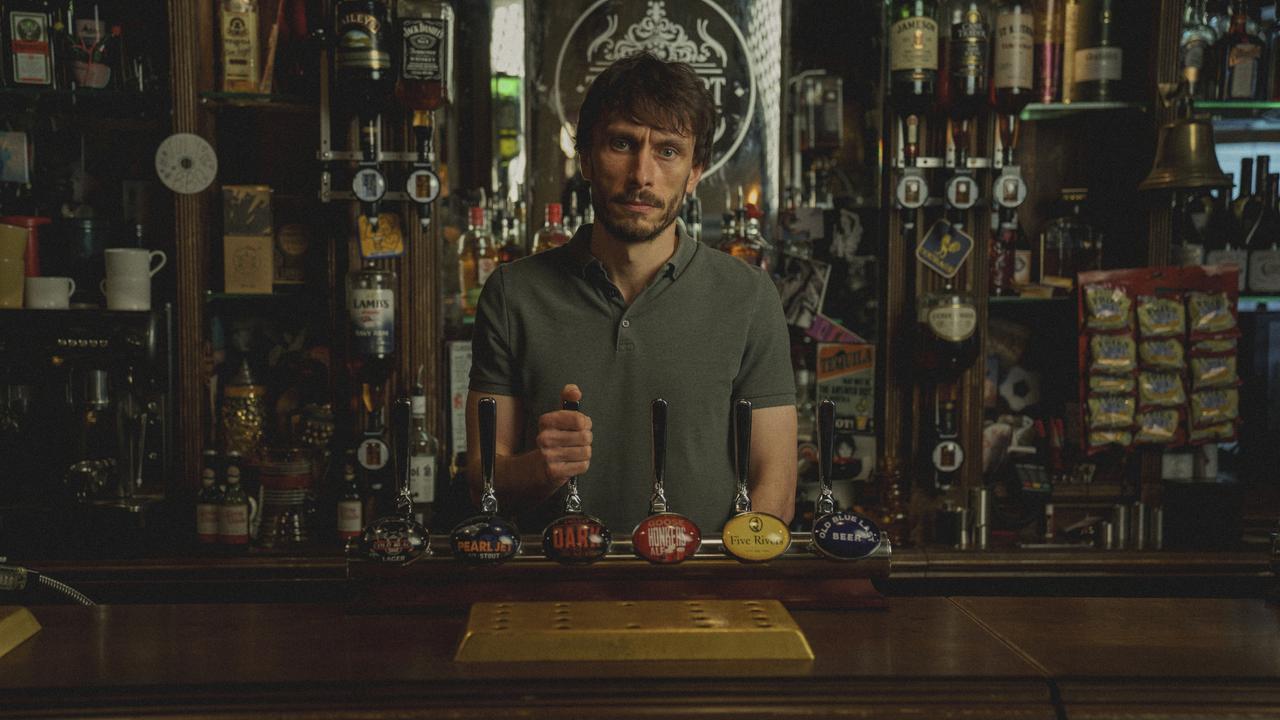
Richard Gadd’s semi-autobiographical tragicomedy is the cringiest bit of television you’ll watch all year, made all the more unbearable because of its real-life ties. Gadd plays a version of himself in Donny Dunn, a struggling comedian tending a local pub to make ends meet. His self-indulgent act of kindness to a blubbering woman named Martha (a transcendent Jessica Gunning) sets off a chain reaction that destabilizes his already troubled existence in unexpected ways. Over 41,000 emails, 106 letters, and 350 hours of voicemails later and Donny’s nightmare forces all of us to confront the ugliest parts of human nature. This is a story of trauma, abuse, obsession, and the worst ways in which people use each other to excuse and escape their own realities. — Jessica Toomer
English Teacher

Brian Jordan Alvarez’s English Teacher is the sort of lived-in dramedy that’s easily overlooked in the age of streaming. It’s sandwiched somewhere between the straight-to-camera deadpans of lovable comedy offerings like Abbott Elementary and the sex-filled, drug-littered romps of Euphoria and The Sex Lives of College Girls. To be clear, we love all of those shows, but the point here is that English Teacher is so good at portraying the complicated middling existence of educators in this moment that some might think it has nothing to say. Where’s the point if audible laughs aren’t squeezed from every misunderstanding or shocking betrayals aren’t lurking in the dark corners of house parties and hot tubs? But even if Alvarez’s dry wit flies by too quickly at times, there’s so much to love about how he tackles the “generational divide” between teachers and their students. There’s an amused curiosity in every interaction, a desire to understand, a visceral effort to avoid drawing finite conclusions even as the show tackles some sticky topical arguments. English Teacher never takes the path most expected as it follows its out Gay educator navigating the social landmines that come with pushy PTA presidents and stereotypically masculine gym teachers and perpetually fed-up principles, and that’s why its more meaningful moments land. Well that, and the comedic genius of Stephanie Koenig. — Jessica Toomer
Fallout
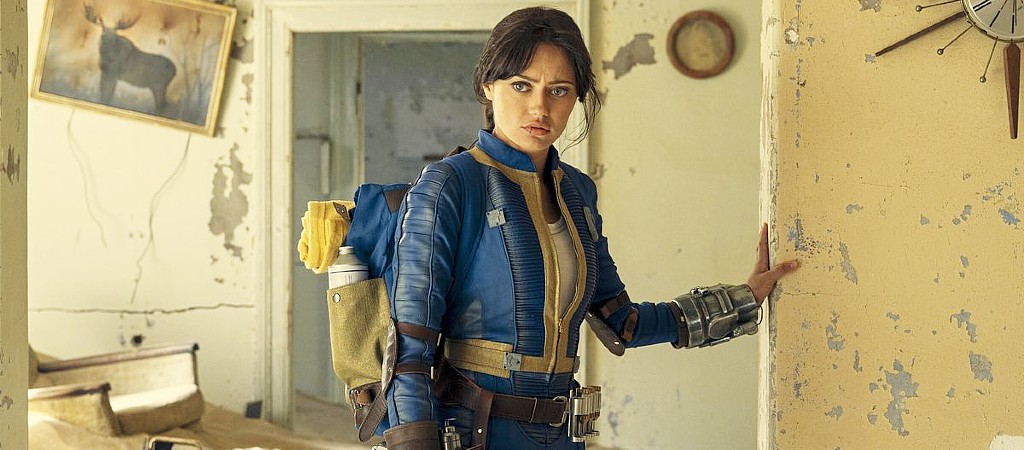
A seemingly unadaptable world came to crowd-pleasing life in this freakishly fun, post-apocalyptic adventure with a second season renewal coming in hot. In the process, this show kept Ella Purnell’s banner career streak going, and between this series and Arcane, she ascended to video-game adaptation queen status. Also, did anybody doubt that Walton Goggins could pull off his first nose-less character with The Ghoul? Nope, and the most remarkable footnote of Fallout‘s success is that, despite live-action adaptations being inherently risky, streaming services are listening to gamers’ concerns and taking them seriously. Netflix and Prime Video/Amazon know a powerful, passionate audience when they see one, and the visual and storytelling payoffs with Fallout have been breathtaking. — Kimberly Ricci
Fantasmas
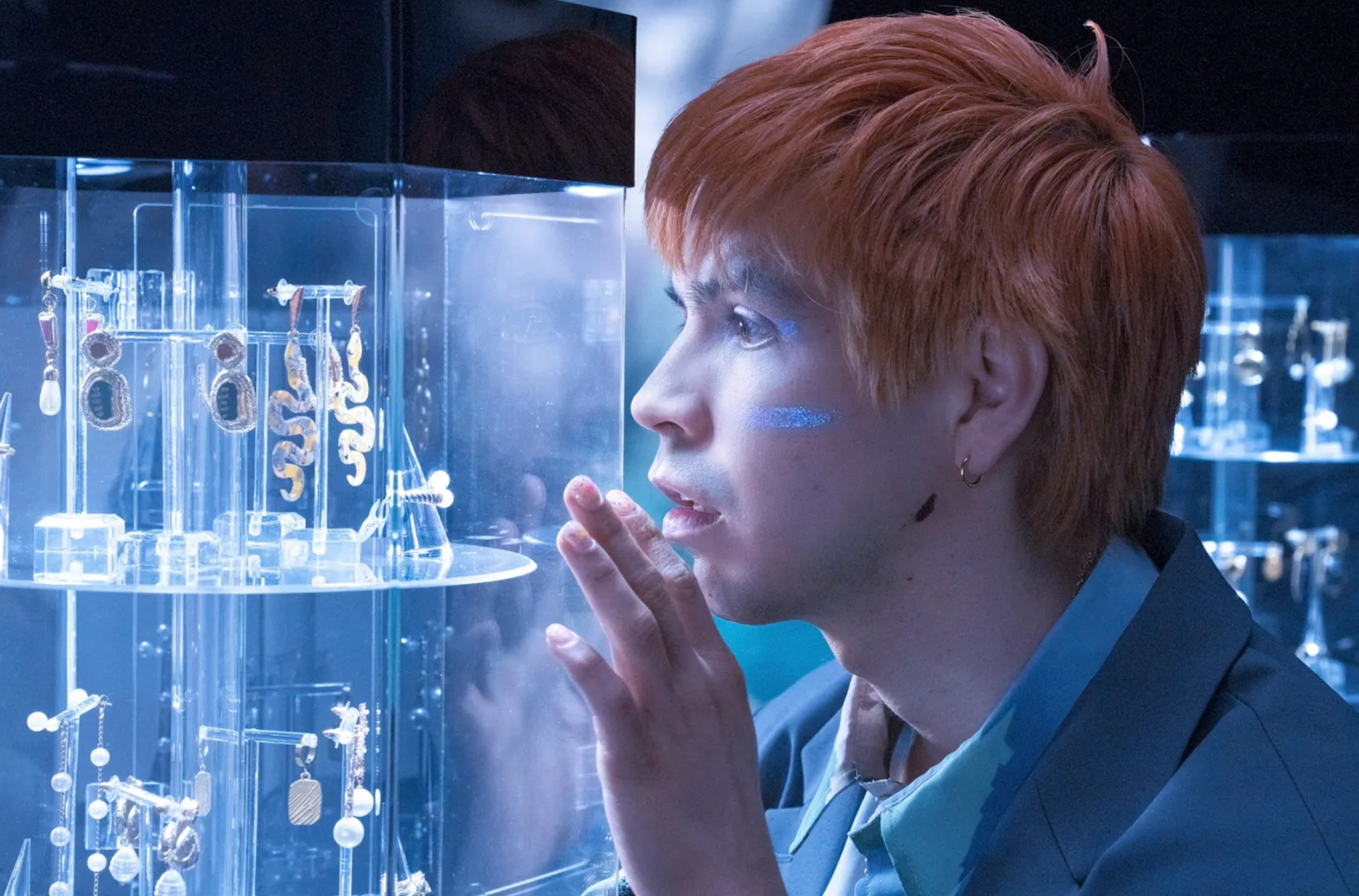
Is it any surprise that the year’s trippiest sketch comedy show emerged from the wacky and whimsical mind of Julio Torres? The mad scientist behind some of Saturday Night Live’s most brilliant, viral skits, Torres’ latest collaboration with HBO is a study in surrealism filled with nonsensical dialogue and eccentric storylines meant to be experienced, enjoyed, and never fully understood. It’s the journey, not the destination, that matters in Fantasmas, and what a wild fucking ride it is with pit stops that include an underground dance club for Queer hamsters, a disturbed sitcom parody starring Paul Dano, Bowen Yang as an elf on trial, Emma Stone as a housewife imprisoned in a reality TV simulation, and a toilet-dressing saleswoman played by Aidy Bryant. Strung together by larger themes that value nonconformity, creative integrity, and intellectual freedom, Torres’ wonderfully bizarre odyssey is unlike anything else on our screens at the moment. But really, would you expect anything less? — Jessica Toomer
Hacks

Hacks wrapped up in a neat little package in season 2… so how is season 3 still so good? Well, to begin with, stars Jean Smart and Hannah Einbinder have the kind of mutual-respect boss/subordinate relationship that brings to mind Don Draper and Peggy Olson or — in deference to Deborah Vance’s generation — Mary Richards and Lou Grant. Hacks also has killer guest stars (including Christina Hendricks and Christopher Lloyd), a strong ensemble cast, and a spicy-but-sweet tone that stands out among HBO comedies. You’re a hack if you’re not watching Hacks. — Josh Kurp
Industry

As I wrote at season’s end, “Industry isn’t the Euphoria of finance or Gen Z Succession. Eric and Harper aren’t Don Draper and Peggy Olson. This is how it goes – you get compared to the greats until you’re undeniably great on your own. Industry is undeniably great on its own.” This was especially true following a season where co-creators Mickey Down and Konrad Kay shattered relationships, raised the stakes, and sort of blew up the world they had made.
Circle of Life moments defined season 3 with Pierpoint’s elders tripping on their own egos and antics while its primary trio of young bankers made big bets that seem like they could pay off big, at least on the surface. Happiness? TBD, but while some hearts were protected, others were strategically put behind glass or put on the line.
Season 3 of Industry did what you want a great show to do: it pulled you in, it dropped your jaw, it showcased Kit Harrington’s bum, and it made you hate characters you love and love characters you kinda hate. Most importantly, it made you absolutely desperate for the start of the next season. — Jason Tabrys
Jerrod Carmichael Reality Show
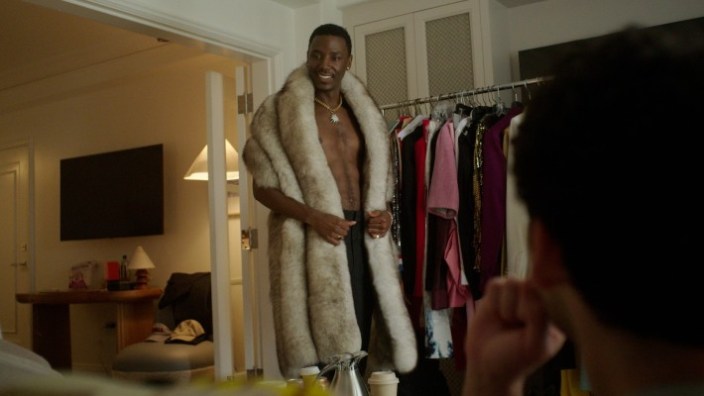
Jerrod Carmichael has reached the rarefied air of comedy fame where people demand more than just laughter. Congratulations?
Sometimes that means jokes are expected to inform and elevate the discourse and, quite possibly, save the world. Sometimes it means being a part of a parasocial relationship with fans where life must be lived in a fishbowl with every relationship and development fully felt (from miles away) and dissected. Carmichael could have run away from all that or built up walls, but instead, he took a camera and decided to have some fun, occasionally making the audience uncomfortable — as with some of his interactions with his parents, stealth evicting a friend, and cheating on his boyfriend. Is it all wholly unscripted? Is Carmichael f*cking with us to create mystery about what is real? And if so, is taking control of the narrative in that way the only way to keep the public at bay? Regardless, Carmichael’s show demands attention. — Jason Tabrys
John Mulaney Presents: Everybody’s In LA
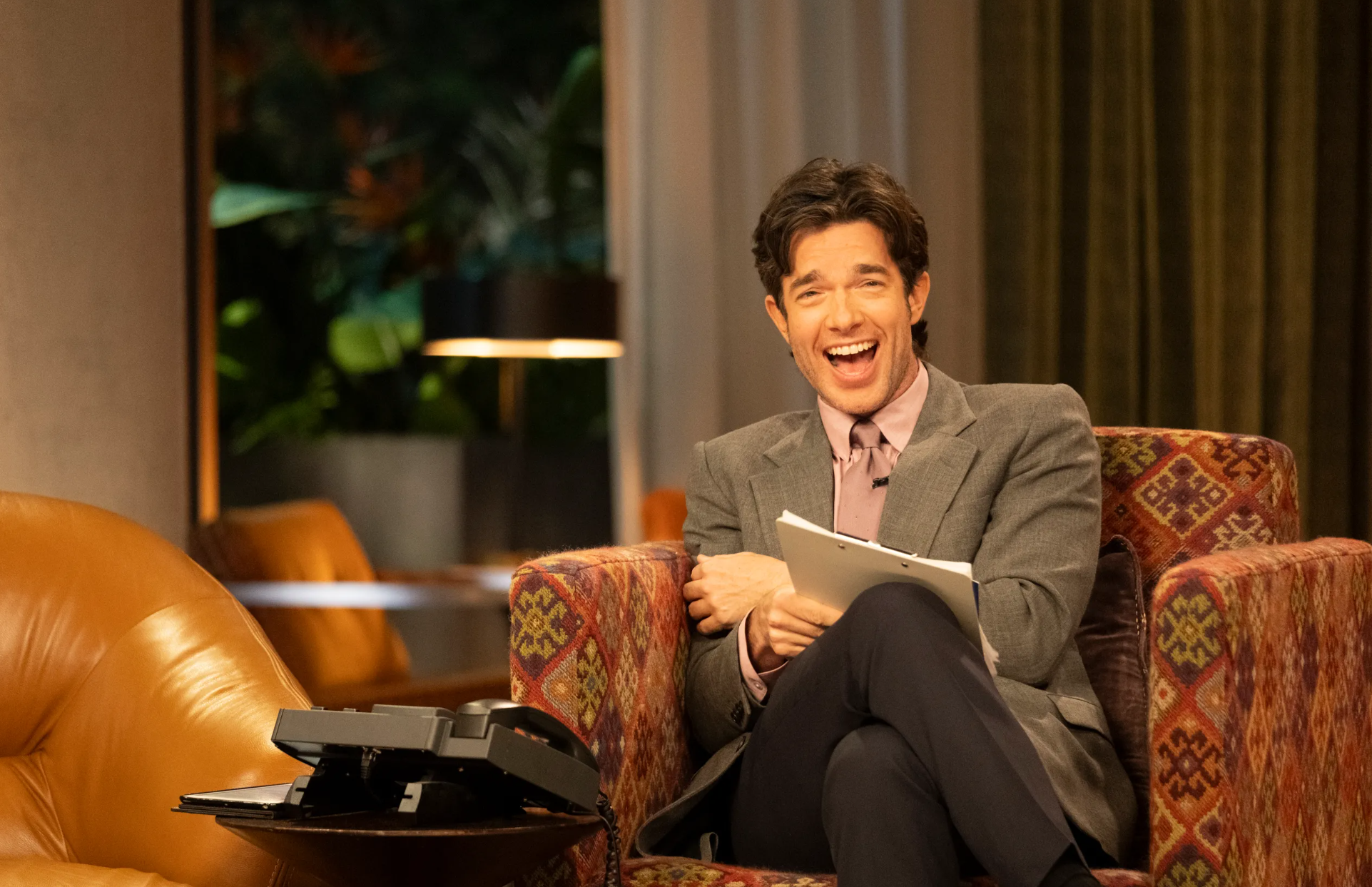
John Mulaney’s Everybody’s In LA is the closest thing we’re ever going to get to the magic of the original Muppet Show. It’s an old-school variety show with Mulaney as Kermit The Frog, a well-meaning conductor trying to keep everything together while chaos ensues. Drive-by robots, sunglass night, John Carpenter, call-in guests that nobody is really interested in save for questions about what car they drive, and conversations about ghosts and palm trees. Oh, and a lot of laughs. But not fake laughs. Genuine, take-you-by-surprise generated laughs with people almost falling off the couch. It’s the goddamn best! A complete and total antidote to the political overload and the stuffy template of standard late-night.
Its magic was partly in its seeming ephemera, but we can’t wait to get another small bite when the show returns to take whatever (hopefully pure and disorderly) form it takes when Mulaney brings it back in early 2025. — Jason Tabrys
Masters Of The Air

“New A-List” member Austin Butler headlines this worthwhile Band Of Brothers followup from Steven Spielberg and Tom Hanks. The series isn’t perfect — especially given the well-founded criticisms of how the Tuskegee Airmen get the narrative shaft — but it’s a solid effort to showcase daring and emotional missions by the 100th Bomb Group who carried out perilous bombing raids “on Hitler’s doorstep.” The ensemble is overall strong as well, and even though Butler is (at times) distractingly handsome, several standout performances emerge. Barry Keough, as always, is an Irish delight, even while perhaps taking on the most “normal” character of his career. Anthony Boyle also delivers another historically compelling performance (he’s an Apple TV+ darling these days), but the real MVP is Nate Mann as Rosie Rosenthal, whose near-miss with becoming a POW sends him on a heartbreakingly human journey to take in the most harrowing portions of the story. — Kimberly Ricci
Mr. And Mrs. Smith

There was plenty of skepticism around the television remake of Mr. And Mrs. Smith and it wasn’t totally unwarranted. In today’s era of remakes, spin-offs, and revivals, it’s expected that the Donald Glover and Maya Erskine-led Mr. And Mrs. Smith faced doubts from critics. But, boy did they prove people wrong. Through eight episodes of the inaugural, Glover and Erskine were nothing short of impressive in their mission as secret agents launched what initially seemed like a promising relationship, all for it to crash, burn, and get riddled with a flurry of bullets and other weapons as the season finale displayed. Mr. And Mrs. Smith was exciting, thrilling, and gripping as it tasked Glover and Erskine’s characters with completing high-risk missions in the face of their crumpling relationship or face extreme consequences like death. Now we just need them to set the record straight on who will be in season two. — Wongo Okon
Presumed Innocent
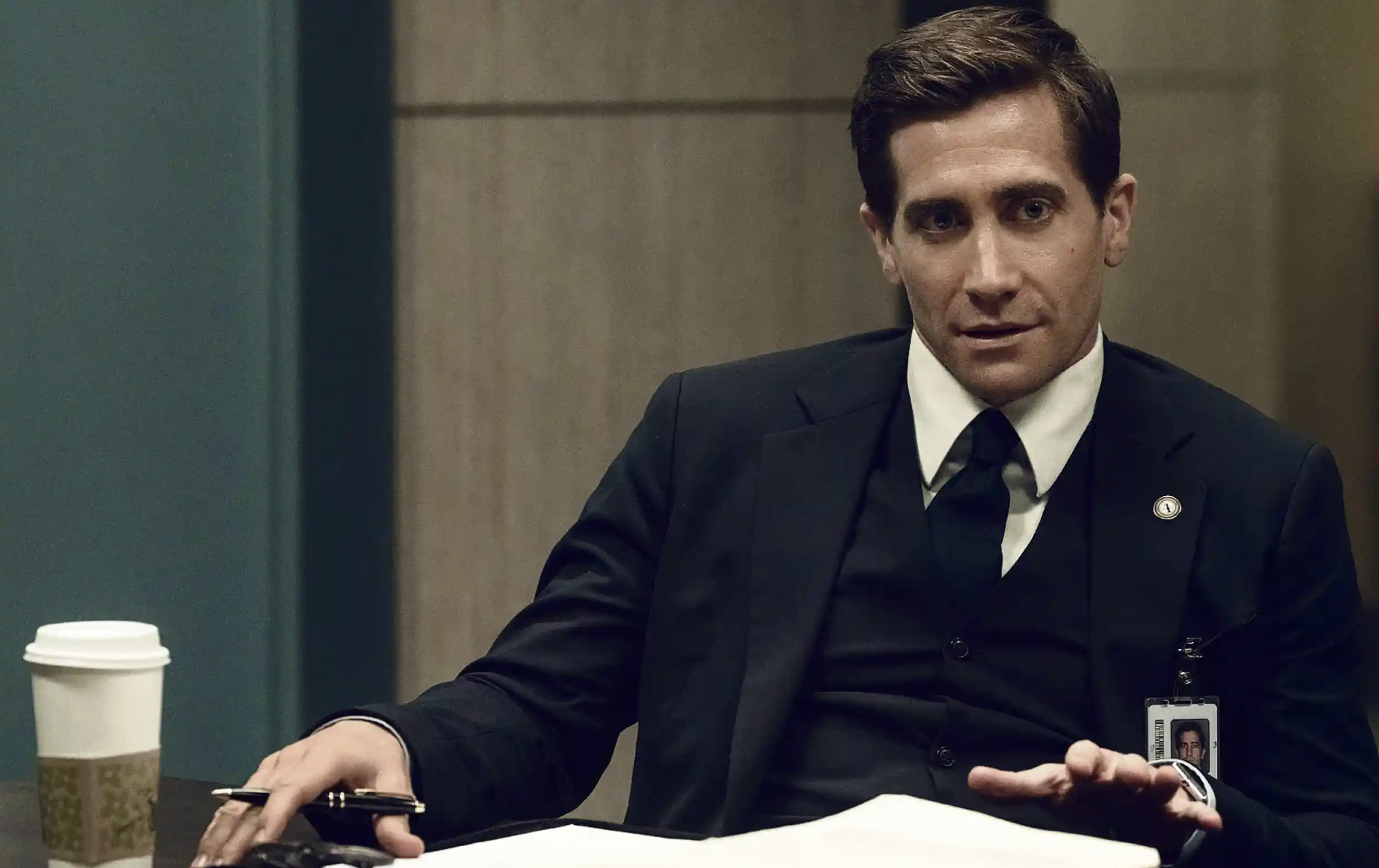
Jake Gyllenhaal, man. He nailed several quadrants between this project and the concurrently filmed Roadhouse reboot, and what a contrast in roles that was. Dare I say that troubled prosecutor Rusty Sabich was more of a daring, FAFO-style turn for Gyllenhaal, despite exchanging action scenes for soapy scandal? This series also nailed the top commandment of entertaining legal dramas, which is to be as unrealistic as possible in the courtroom. The end effect was ridiculously but effectively pulpy, and although Presumed Innocent was intended as a limited series, popular demand meant that another round was greenlit (call it the David E. Kelley Effect). Apple TV+ is actually planning on running with an unexpected followup story (and a female lead) for the second season rather than adapt the next Rusty Sabich book, Innocent. Yet Gyllenhaal is executive producing, and Kelley is one of the best at keeping drama alive, so we will trust in the process. — Kimberly Ricci
Ripley
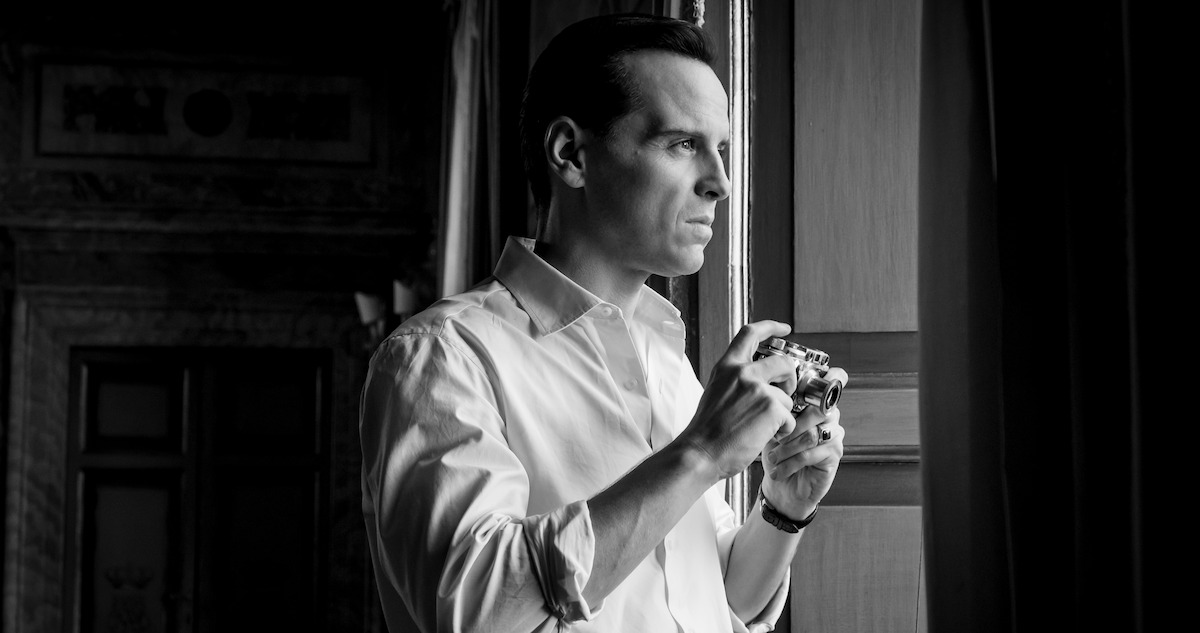
Netflix’s adaptation of Patricia Highsmith’s lauded crime novel is about as far removed from the homoerotic threesome of 90s-era Matt Damon, Jude Law, and Gwyneth Paltrow as it could get. Instead of dreamy, sun-soaked vistas and youthful joie de vivre both praised and preyed upon, this series goes full bore on the noir, giving us a chilling character study shot exclusively in black-and-white. What it lacks in sexual tension and ambiguity it makes up for with Andrew Scott, firmly back in his villain era and determined to slowly scale all the steps of Europe as Thomas Ripley, a New York con-man tasked with bringing an aimless heir to heel. A smooth sociopath with a petty sense of humor and a hunger for a life that doesn’t belong to him, Scott’s Ripley is magnetic and menacing at every turn, eating up the screen as he machinates a new identity for himself at the expense of everyone around him. — Jessica Toomer
Shogun
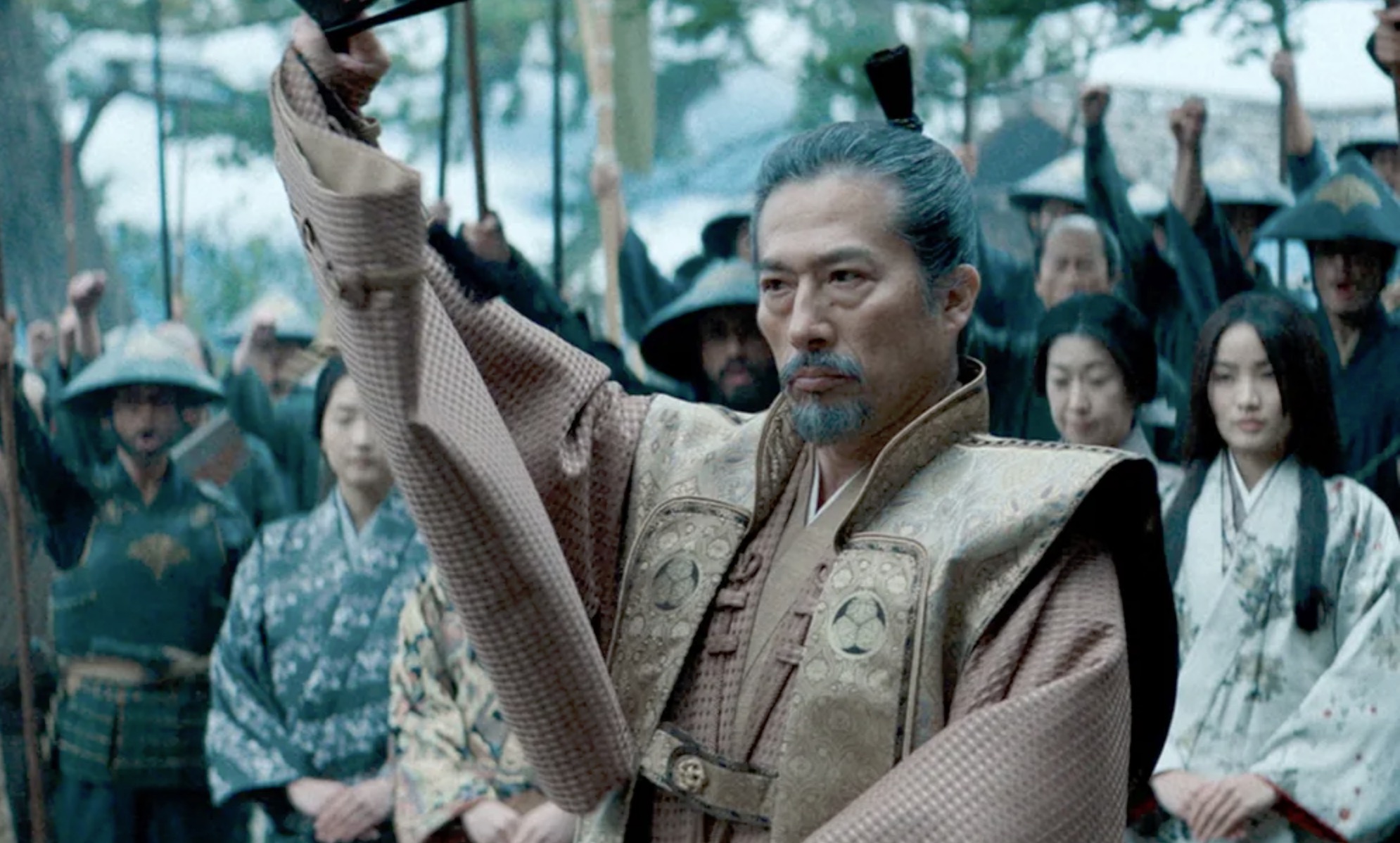
FX really did the thing here. Series creators Rachel Kondo and Justin Marks pounced upon an intricate slice of James Clavill’s Asian saga with an infinite supply of maneuvering characters, endless motives, and freaking subtitles, and they emerged with a fully absorbing series that felt accessible for everyone, not simply those who have read the book. That’s no tiny feat, and the show was so resoundingly successful that a pair of additional seasons was greenlit. Hiroyuki Sanada will continue his reign as Lord Toranaga, and yup, Cosmo Jarvis and his TV-invisible manhoodwill be back as John Blackthorne because — let’s face it — Toranaga cannot live without him. The soap-opera factor of this show is too delicious, and the audience clamored for more. — Kimberly Ricci
Shrinking
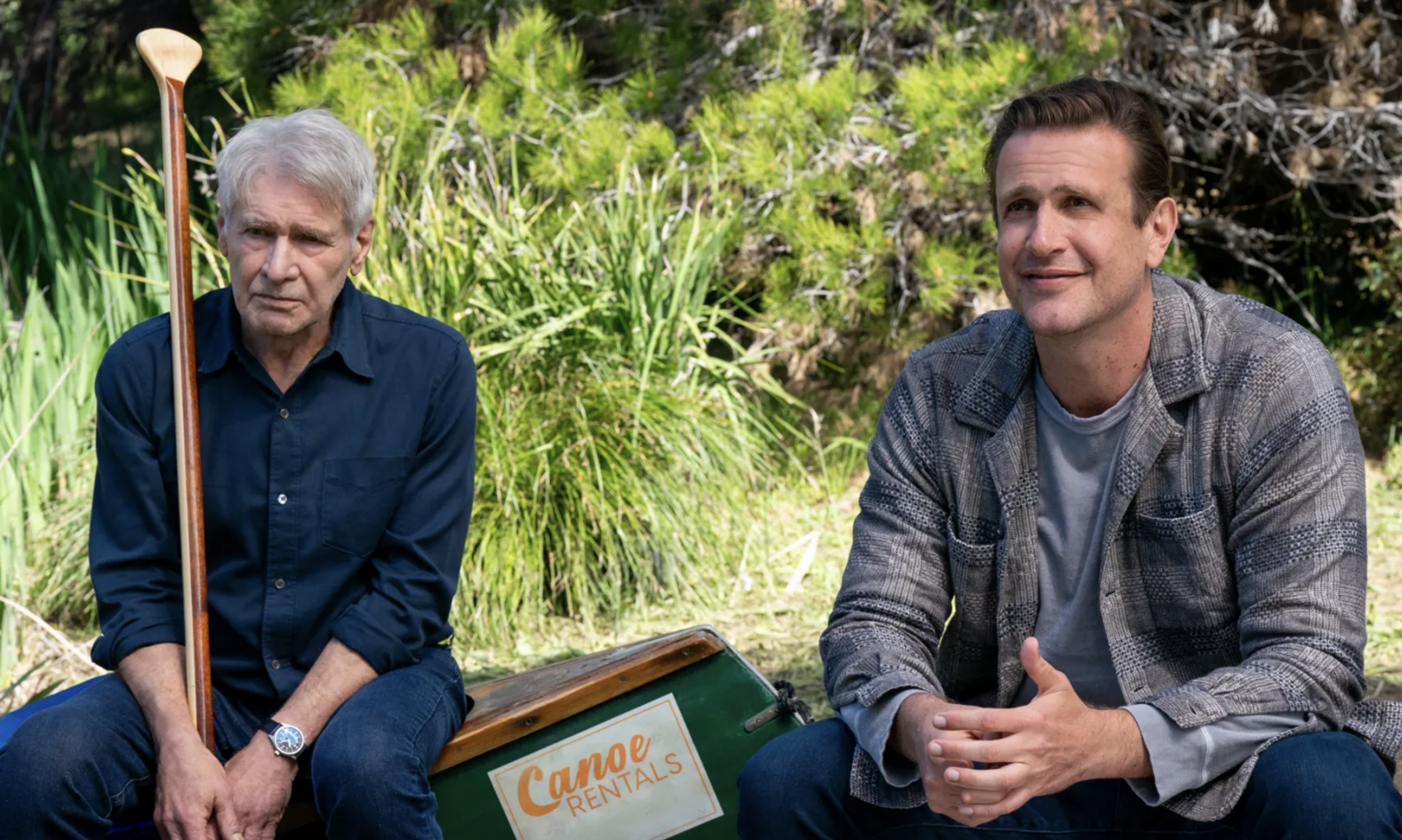
Shrinking thrives thanks to the unique quirks of the shows propelled by awkwardly funny and outright hilarious moments, there’s an additional layer of wholesomeness that leaves smiling from ear to ear at the end of each episode. Contrary to season’s one focus on grief, this year’s second season shifts its attention to forgiveness. What comes from it is painfully honest and beautifully told accounts of unexpectedly wanting to forgive others for their wrongs, even the most heinous ones, as well as giving yourself grace and accepting your flaws. Jimmy (Jason Segal), Gaby (Jessica Williams), Paul (Harrison Ford), Liz (Christa Miller), and more do a wondeful job and portraying these moments in connection to their characters. In the end, it’s these combined dynamics and great writing that makes Shrinking one of the best shows of the year. — Wongo Okon
Silo
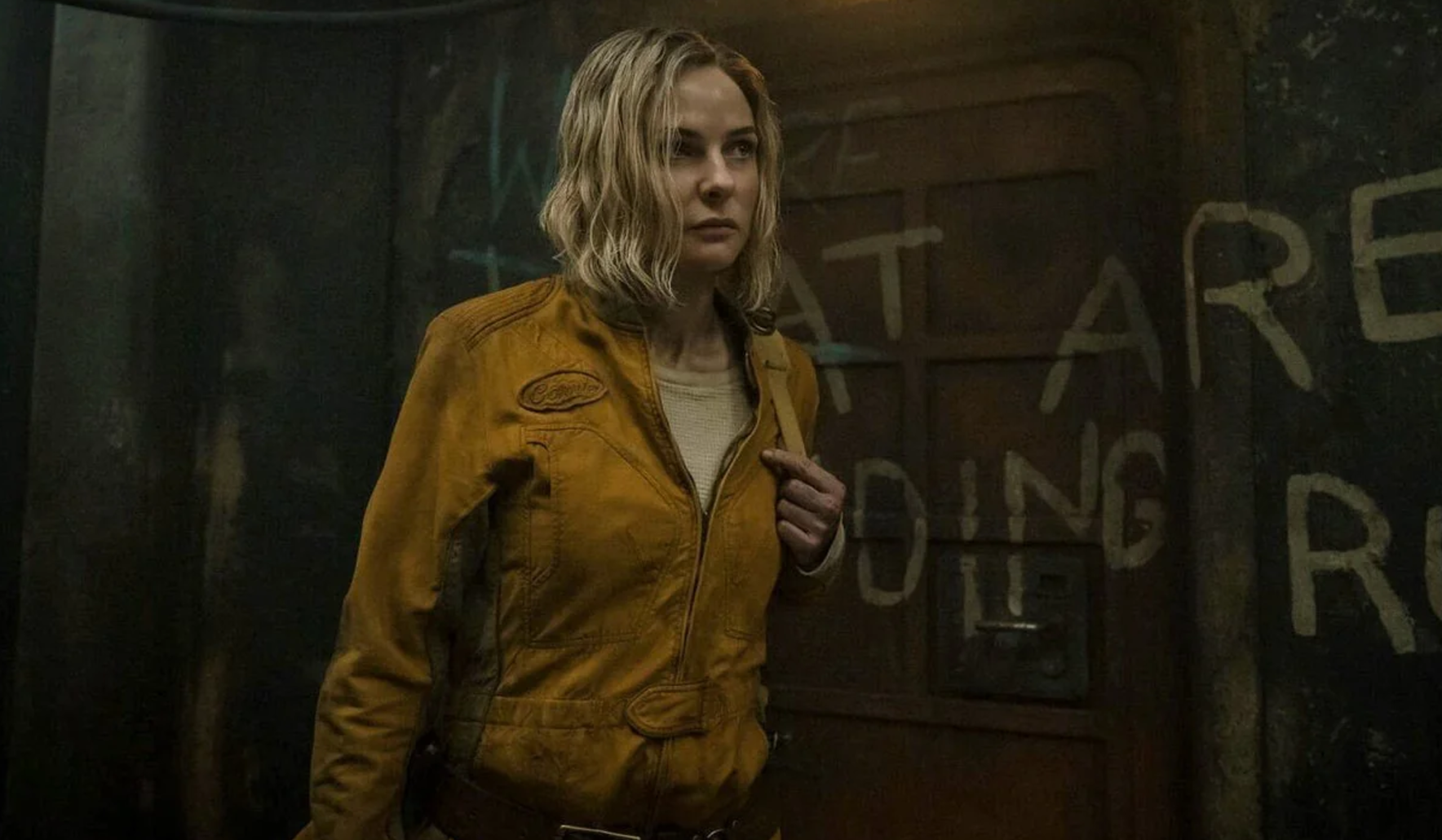
Showrunner Graham Yost wrapped himself up in Hugh Howey’s Wool omnibus and the Shift sequel and emerged with an astounding piece of art and a master class in world-building. Of course, it remains to be seen how well the series will roll out as a whole, especially when splitting up three books into four separate seasons. For now, however, the show is firing on all cylinders with Rebecca Ferguson proving that nobody could pull off a more true-to-the-book Juliette Nichols. Heck, not even Common’s Inexplicable Leather Jacket can distract from Juliette’s mechanical wizardry that dangerously knocks dust off the relics of yesteryear. This season, Juliette’s no-nonsense vibe is perfectly counterbalanced by newcomer Steve Zahn nailing the ideal combination of Solo’s childlike innocence and paranoia while Yost is effortlessly juggling settings. Apple TV+ has been crushing the sci-fi game lately, and Silo is a crown jewel of that effort. — Kimberly Ricci
Smiling Friends
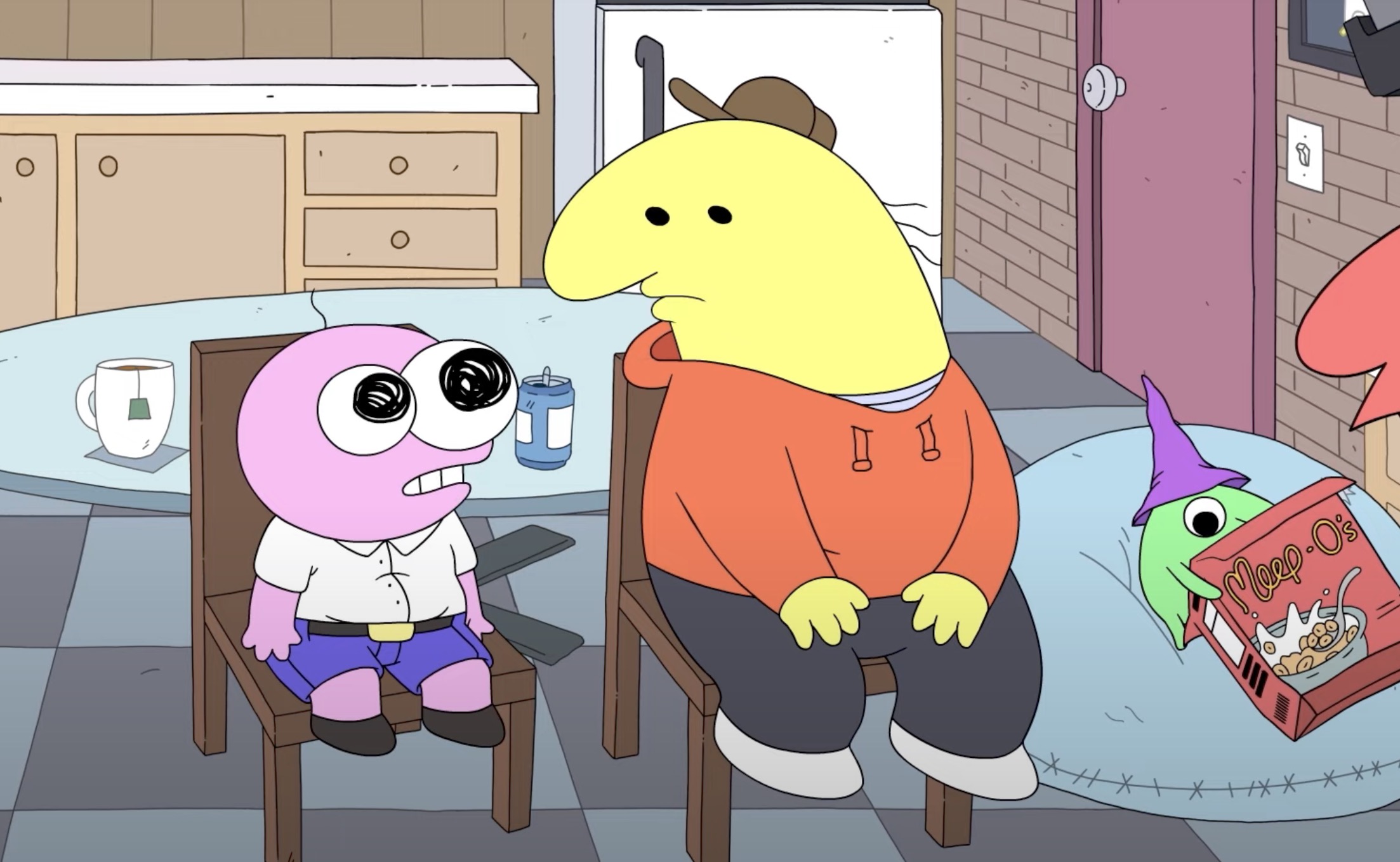
The season 2 finale of Smiling Friends is about a reanimated snowman who learns about the concept of death and can’t stop screaming. There’s also a yeti and the ghost of Bill Nye. Earlier in the season, there are episodes about a washed-up video game mascot who gets sprayed with a hose; a frog (Mr. Frog, to put some respect to his name) that runs for president; and aliens playing a prank that involves blowing up a planet. Smiling Friends is wild, unpredictable, hilarious, and Adult Swim’s best animated series since Rick and Morty. There’s truly nothing else like it. — Josh Kurp
The Bear
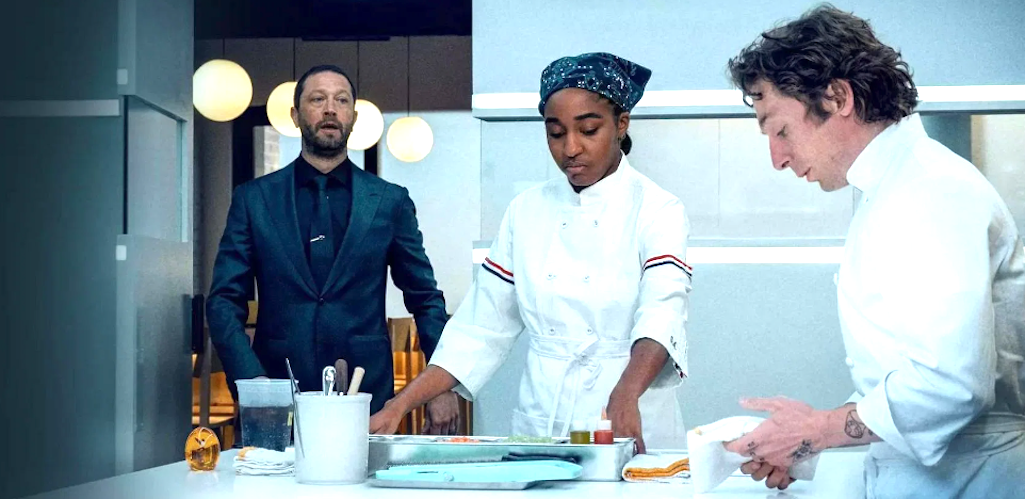
The individual pieces – specific standout performances and episodes like Tomorrow, Napkins, and Ice Chips – may be worth more than the assembled package, but The Bear’s third season still stands out as one of the most ambitious and expertly executed shows on TV. That’s how far ahead of the field it is.
Messy and meandering? Sure, but that’s part of life, same as the occasional heartful or horrifying moment, the shouting, lessons learned through hardship stubbornly received, and the drive and bond of these characters around their aspirations and their found family. Plenty of shows purport to being “real,” but The Bear delivers an authentic seeming run through the minefields of expectations, guilt, and trauma, finding absurdity and small laughs along its big journey. — Jason Tabrys
The Penguin
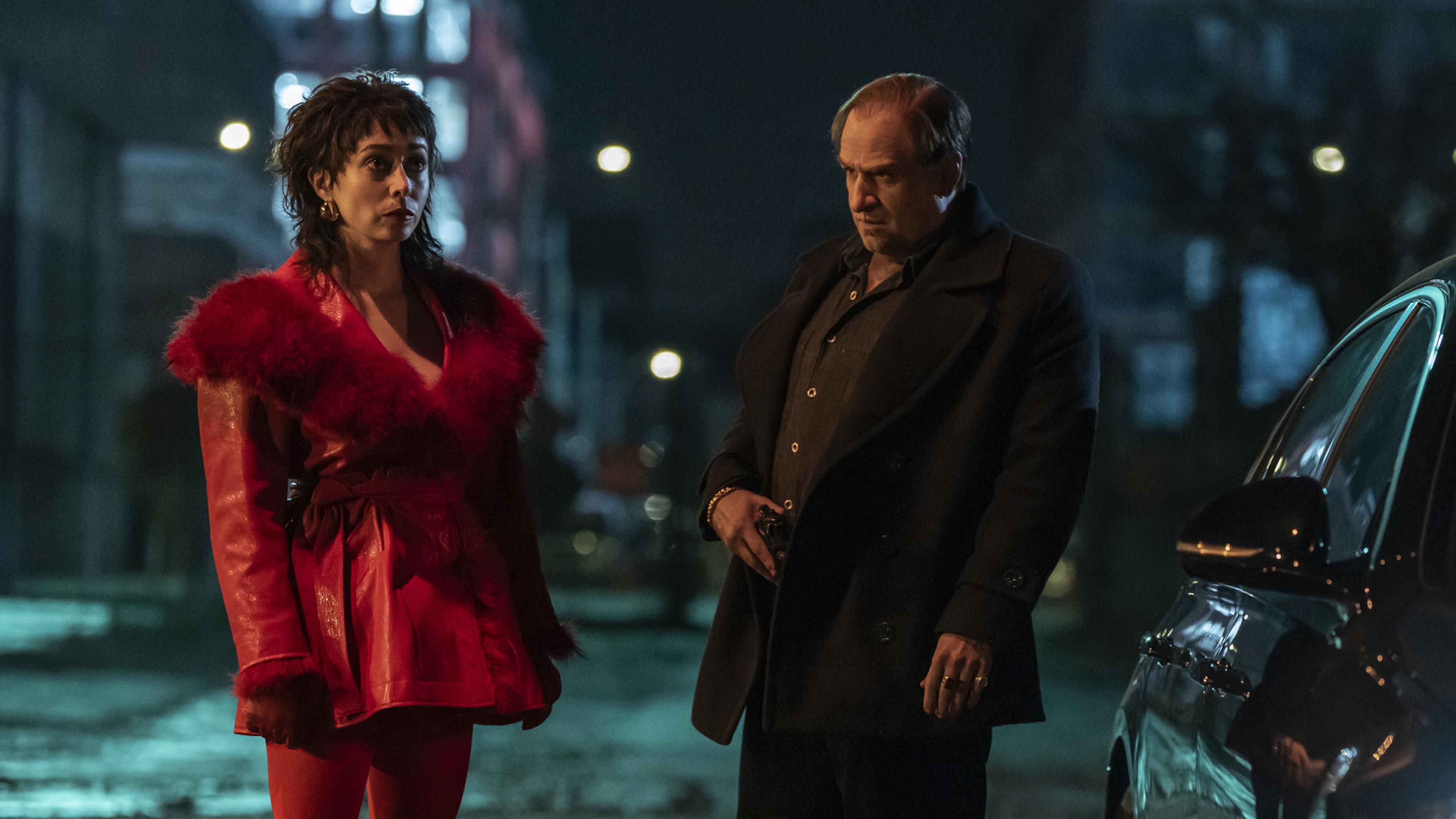
The new Batman shared universe is absolutely living up to the hype and The Penguin is latest example of that. Focused on Colin Farrell’s Oz Cobb/The Penguin from The Batman film released in 2022, The Penguin is a masterclass in storytelling and world buidling as well as controlling the audience’s feelings throughout the journey. Penguin is undoubtedly the villain in this story, but throughout his escape from the Falcones, bonding with Victor Aguilar, and nurturing his frail mother, you’re nearly convinced to root for him. That is, until a shocking reveal slaps you in the face and snaps you back to reality (none better than the season one finale). The Penguin brings so much anticipation and excitement for what lies ahead in the the next season and the upcoming The Batman – Part II film. The future is bright for DC. — Wongo Okon
What We Do In The Shadows
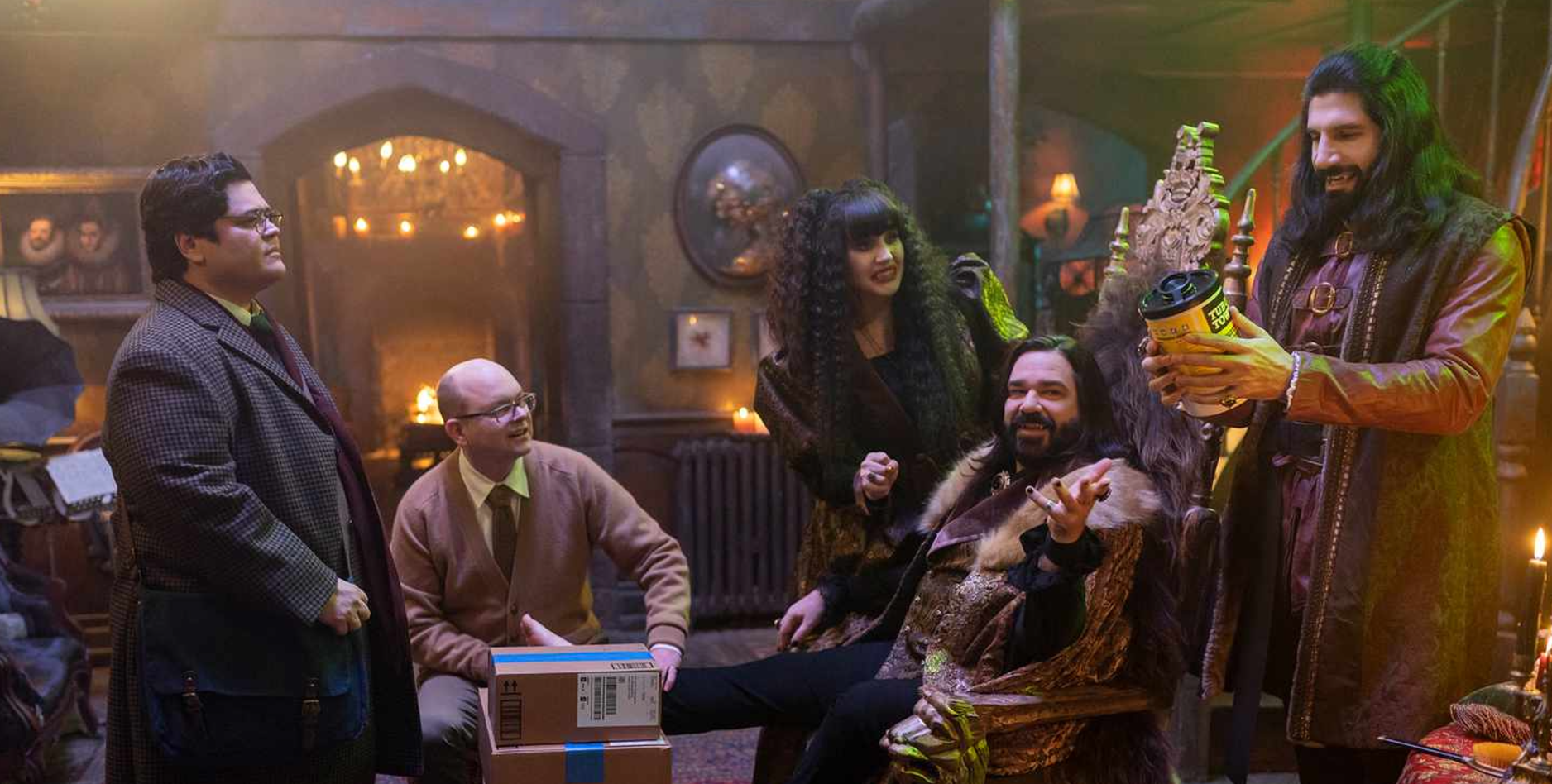
FX’s bloody mockumentary about a group of undead idiots rooming together in a dilapidated Staten Island mansion has given us enough comedic gags to last a lifetime, and yet, for some reason, that doesn’t make bidding goodbye to them any easier. What We Do In The Shadows began as a spin-off experiment, a test to see if the off-kilter Kiwi comedy of creators Jemaine Clement and Taika Waititi could translate stateside. When it ends – too soon for many of us – it will have established itself as one of the most inventive, heartfelt, ridiculous genre offerings on television, an ensemble success story with characters that became family and jokes immortalized in the internet’s collective lexicon. From Superb Owl parties and energy-draining office workers to supernatural nightclubs, fitness cults, volleyball-loving bartenders, Jack Shacks, home improvement parodies, and Matt Berry’s unrivaled linguistic flare, WWDITS’ contribution to the culture can’t be overstated. It helped us survive pandemics and lockdowns and multiple writer’s strikes, offering the best form of proof that laughter really can heal and silly, irreverent comedy still has a place in the era of Post Peak TV. — Jessica Toomer
X-Men ’97

For the most part, the art we loved as children is best left in the past. Star Wars fans have to deal with this idea often, as Disney struggles to make new installments that both capture the way Star Wars made generations originally feel while adding something unique to the increasingly robust catalog. Marvel could have faced equally shaky territory with their plan to continue their X-Men cartoon series, a landmark Saturday morning tradition for ‘90s kids. But the animated nature of the show avoids the pitfalls of aging characters and time gaps, instead picking up right where the original left off. The show manages to feel both small and big at the same time – something Marvel has struggled with in both film and TV of late – while delving into central issues of prejudice that have driven the comic franchise since the beginning and haven’t lost their relevance. X-Men ‘97 proved to be a transportive experience for fans, back to their youth, back to a time where connected universes, market oversaturation, and superhero fatigue were as unfathomable as the concept of streaming itself. — Philip Cosores







